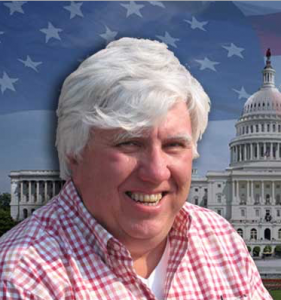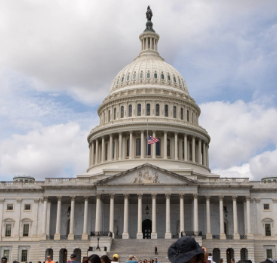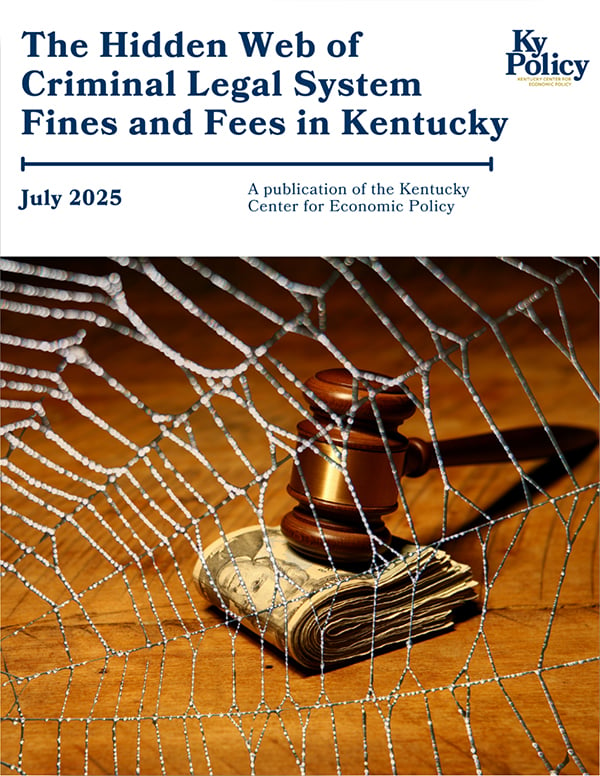The Rosetta Stone required to determine just what it is that makes Senate Republican Leader Mitch McConnell tick can only be uncovered through the realization that obtaining power for its own sake, regardless of how it’s used or molded, is, for the Louisville lawmaker, the sun in the morning and the moon at night.
That understanding, and the subterfuge he is willing to provide to obtain his golden fleece, was on full display this week during the airing of an episode of the PBS program Frontline, titled, “McConnell, the GOP & the Court,” which included, among other interesting items, commentary from our old pal Al Cross.
If you have not yet seen it, do so. And make sure you have a pad and pencil handy to record the number of times the name McConnell is correlated with the word power — it comes more frequently than Kyle Schwarber’s swings and misses.
The program offers an unending number of revelations. Keith Runyon, the former editorial page editor of the Louisville Courier-Journal, the once-great newspaper that should forever be condemned for endorsing McConnell in his initial bid for public office, noted that Mitch, during a lunch after he was elected to the Senate in 1984, told Runyon it was unlikely the paper would endorse him again — he was suddenly shifting from the sort of Chamber of Commerce Republicanism needed to secure electoral success, to the right side of the dial to gain influence within the GOP’s internal ranks in Washington.
Such is McConnell’s malleable political values in pursuit of his beloved power. That desire for supremacy despite the price also is shown in his unwillingness to confront a man he obviously abhorred – former, and, perhaps, future President Donald J. Trump – in order to influence judgeship appointments to the federal courts, particularly the Supreme Court.

McConnell has, since his arrival in DC 38 years ago, maintained an interest in the courts as a means of extending the GOP’s, and, thus his, hold on power. Judges receive lifetime appointments and, if they’re of a conservative bent, can dismiss laws or even previous federal court rulings that fail to meet the party’s increasingly right-wing standards – see Rove v. Wade.
Revolutionaries in various international hotspots used to seize the radio stations to gain control. McConnell seized the federal courts and the impact will be felt for two generations. The way he went about achieving the goal represents one of the most odious and underhanded maneuvers in recent American history – refusing to consider President Barak Obama’s nominee for a Supreme Court vacancy, leaving the spot open for about a year, and then displaying the flexible morals he’s infamous for by pushing through the nomination of Justice Amy Coney Barrett in the closing weeks of the Trump administration.
Before all that, McConnell set all sorts of records for filibustering Obama’s lower court nominees.
According to Frontline, McConnell was so intent on waylaying Obama’s Supreme Court nominee, Judge Merrick Garland, that when Sen. Jerry Moran, R-KS, suggested Garland receive at least a hearing, McConnell threatened to fund a Moran primary opponent if he followed through.
McConnell rationalizes his actions by citing the treatment of Judge Robert Bork, a far, far right-winger who was nominated by President Ronald Reagan and then rejected by the Senate. Some of the rhetoric deployed by the opposition in that debate was unfair. But it was hardly the first time a high court nominee was rejected – President Richard Nixon faced two, Judge Clement Haynesworth and Judge G. Harold Carswell, in one year – and six Republicans joined all but two Senate Democrats in voting against Bork.
It’s just Mitch’s excuse for running a three-card monte game. He would have sought control of the judiciary by hook or by crook regardless in hopes it would save the other great love in his political life – campaign finance.
Frontline, understandably, given the program’s time restraints, failed to mention McConnell’s desire to implement unconstrained political fundraising as a key component in his grab for power, which, as you’ll see fits hand in glove with the seizure of the federal courts – see Citizens United.
McConnell at one time supported campaign finance reform. In 1973 he authored an op-ed for the Courier-Journal, complaining that the tons of money being poured into political campaigns was a “cancer.”
“The lack of an overall limit on spending is an open invitation for special interests to circumvent this ordinance and lavishly finance future candidates, regardless of the limitations on amounts of individual contributions,” McConnell said.
He added, “With regard to a spending limitation, past events have shown how close we are to a ‘bought’ nation, state and city.”
You may have guessed McConnell’s malleable political values are about to become even more pliable once again. Upon winning his Senate seat and quickly realizing that Republicans could bury Democrats through donations from the party’s multitude of fat cats and GOP-leaning corporations, he cast aside his distaste for the campaign finance system and transformed into an opponent of any reform.
McConnell, those close to him have noted, is one of those rare cats who actually enjoys dialing for dollars, hitting up supporters for more and more greenbacks that will naturally in the end provide him with more and more power.
His cure for cancer, it turns out, is more cancer.
In his patting himself on the back memoir titled The Long Game, McConnell acknowledged his change of heart came about because, “I never would have been able to win my race if there had been a limit on the amount of money I could raise and spend.”
So, in 1990, when Senate Democratic Leader George Mitchell, of Maine, offered a campaign finance reform bill to curtail political action committee contributions, establish spending limitations and block the use of so-called soft money — contributions that evade federal regulation, mainly money raised by state political parties that are channeled back to the party’s candidates – McConnell filibustered. Successfully.
In 2002, McConnell knocked heads, sometimes viciously, with the late Sen. John McCain, R-AZ, over the Bipartisan Campaign Reform Act, familiarly known as McCain-Feingold, which killed soft money, prohibited what were called issue advocacy ads within certain periods before an election, and more. McConnell lost that one but took his objections all the way to the Supreme Court.
McConnell lost before the high court but the law subsequently was watered down by the justices to a substantial degree. Finally, in January 2010, in an infamous case cited as Citizens United v. Federal Election Commission, a majority of the justices struck down sections of McCain related to corporations and unions, basically characterizing them as individuals who had First Amendment rights.
The ultimate result was unlimited corporate spending on campaigns, that likely brought tears of joy to Mitch’s admiring eyes.
McConnell is still on the case. Reports circulated recently that Sen. Josh Hawley, R-MO, who, to be fair, has quickly established a reputation for being a nitwit, intends to sponsor campaign finance reform that will limit corporate political contributions to third party groups.
Needless to say, Mitch is anti. During a luncheon meeting, according to CNN:
McConnell warned GOP senators that they could face “incoming” from the “center-right” if they signed onto Hawley’s bill. He also read off a list of senators who won their races amid heavy financial support from the Senate Leadership Fund, an outside group tied to the GOP leader that spends big on TV ads in battleground Senate races. On that list of senators: Hawley himself, according to sources familiar with the matter.
Regardless, events have created a synchronicity between the two issues closest to McConnell’s heart — federal courts and campaign finance reform — to provide him with the sort of power he has always coveted.
It also has created an American democracy polarized to a degree unseen since the 1960s. But Mitch has what he wants.

















